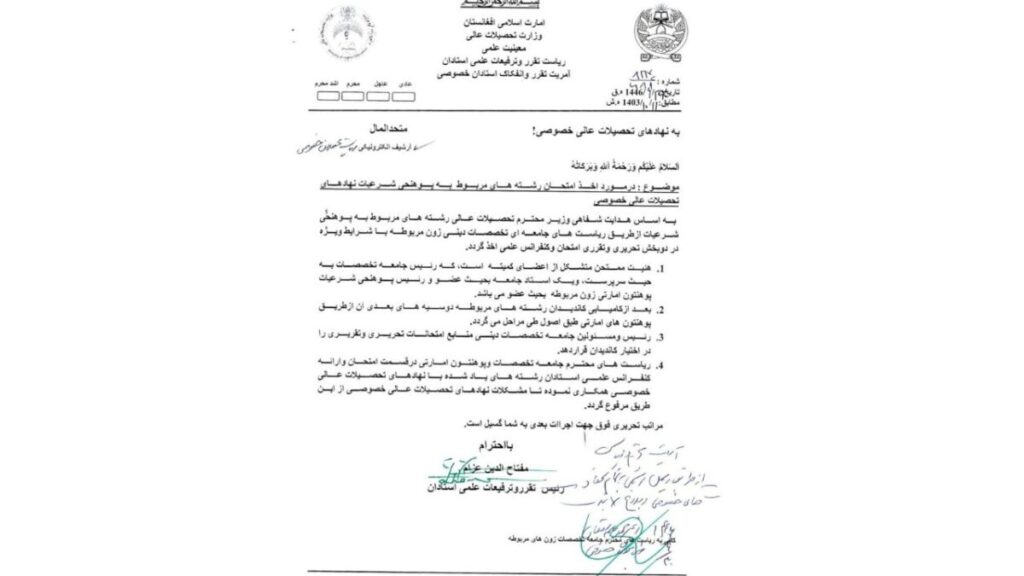Taliban have issued a directive requiring all private universities in the country to conduct written and oral proficiency exams for their faculty members. The mandatory exams are intended to assess the qualifications of professors teaching in higher education institutions.
According to an official letter from the Taliban’s Ministry of Higher Education, the exams will be overseen by a special committee led by the head of the Taliban’s “Department of Islamic Specializations.” The committee will also include deans of Sharia faculties from public universities and a faculty member from each province.
The directive specifies that the exams will focus on Islamic subjects, with study materials provided by the Department of Islamic Specializations. The results will be used to evaluate the academic standing of professors and ensure compliance with Taliban-approved academic standards.
Backlash from academics
The directive has drawn widespread criticism from academics, who view it as an affront to the country’s academic independence. Fazel Hadi Wazin, a prominent professor, described the move as a “humiliation” for the academic community.
“History will record this disgrace,” Wazin said, adding that the exams will be conducted by “clerics and officials with no formal university education,” targeting professors with advanced academic credentials, such as doctorates and master’s degrees.

Critics argue that Taliban are using the exams to enforce their narrow interpretation of Islam on higher education, sidelining more progressive and academically diverse perspectives. Many believe this move will further erode Afghanistan’s fragile academic freedom and intellectual diversity.
Some scholars have pointed out that the Taliban’s educational policies are rooted in Deobandi teachings, which they say conflict with broader Islamic traditions and modern academic principles.
This directive is part of a broader effort by the Taliban to reshape Afghanistan’s education system to align with their ideological framework. These efforts have included restrictions on women’s education, a ban on music and arts, and the imposition of strict religious curricula.
The new policy is expected to exacerbate challenges faced by Afghan professors, many of whom have already been marginalized or forced to flee the country since the Taliban returned to power in August 2021.





